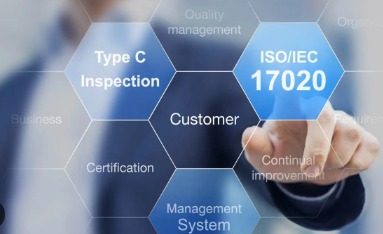ISO/IEC 17020:2012 – Ensuring Competence and Impartiality in Inspection Bodies
In industries where safety, quality, and compliance are non-negotiable, inspection plays a crucial role in ensuring that products, processes, and systems meet the required standards. From industrial plants and infrastructure projects to vehicles and manufacturing facilities, inspections build trust between suppliers, customers, and regulators.
To ensure that inspection bodies operate consistently, competently, and with integrity, the International Organization for Standardization (ISO) introduced ISO/IEC 17020:2012 – Conformity Assessment – Requirements for the Operation of Various Types of Bodies Performing Inspection.
This globally recognized standard defines the requirements for inspection bodies to demonstrate their competence, impartiality, and consistent operation — ensuring accurate and reliable inspection outcomes across industries.
What is ISO/IEC 17020:2012?
ISO/IEC 17020:2012 is an international standard developed jointly by the International Organization for Standardization (ISO) and the International Electrotechnical Commission (IEC). It sets out the requirements for organizations performing inspection activities, helping them prove that their operations are professional, impartial, and technically sound.
Unlike product certification or testing standards, ISO 17020 focuses specifically on inspection services — examining products, installations, systems, or processes to determine conformity with specific requirements or professional judgment.
The standard is applicable to all sectors, including:
-
Construction and engineering
-
Manufacturing and industrial equipment
-
Transportation and automotive
-
Environmental inspection
-
Oil, gas, and energy
-
Food and agriculture
-
Health and safety
Purpose and Objectives of ISO 17020
The main objective of ISO/IEC 17020 is to promote confidence and consistency in the operation of inspection bodies. It ensures that clients and regulators can trust inspection results, regardless of where the inspection takes place or who performs it.
Key objectives include:
-
Defining uniform requirements for inspection competence and impartiality.
-
Promoting transparency and reliability in inspection operations.
-
Ensuring consistent application of inspection methods and procedures.
-
Enhancing confidence in inspection reports and decisions.
-
Facilitating international acceptance of inspection results through mutual recognition.
Types of Inspection Bodies under ISO 17020
ISO/IEC 17020 recognizes three categories of inspection bodies, depending on their relationship with the organization being inspected:
Type A – Third-Party Inspection Bodies
These are independent organizations that perform inspections without any involvement in design, production, or supply activities. They offer the highest level of impartiality and are often accredited to provide inspection services to external clients.
Type B – Second-Party Inspection Bodies
These operate as part of a larger organization but provide inspection services only to their parent organization. For example, a manufacturer’s in-house inspection unit ensuring compliance with internal quality standards.
Type C – Combined Inspection Bodies
Type C bodies perform inspections for both their parent organization and external clients, provided impartiality and independence are maintained through effective controls.
Key Requirements of ISO/IEC 17020
To comply with ISO 17020, inspection bodies must meet several essential requirements across technical, organizational, and managerial domains:
1. Impartiality and Independence
Inspection bodies must operate objectively, free from commercial, financial, or other pressures that could compromise judgment. Appropriate safeguards should be in place to manage potential conflicts of interest.
2. Competence of Personnel
Inspectors and technical staff must be qualified, trained, and experienced in relevant inspection activities. Continuous professional development ensures that competencies remain up to date.
3. Management System Requirements
A robust management system must be established to control documentation, quality, and operations. This can be based on ISO 9001 principles or developed independently, provided it meets the same quality assurance intent.
4. Inspection Methods and Procedures
Inspection bodies must use validated, documented, and consistent methods to ensure reliable results. Procedures must be clear, repeatable, and traceable.
5. Equipment and Facilities
Inspection bodies must maintain and calibrate inspection tools, instruments, and facilities to ensure accurate measurements and observations.
6. Confidentiality and Information Security
All information obtained during inspection must be treated as confidential and protected from unauthorized disclosure.
7. Reporting of Inspection Results
Inspection reports should be accurate, objective, and clearly written, providing all relevant details to the client. Reports must be traceable to the inspection activities performed.
Benefits of ISO/IEC 17020 Accreditation
Obtaining ISO 17020 accreditation provides inspection bodies with a powerful competitive advantage and enhances their credibility in the marketplace. The major benefits include:
1. Enhanced Credibility and Reputation
Accreditation demonstrates that the inspection body operates competently and impartially, increasing confidence among clients, regulators, and the public.
2. Consistency in Operations
Standardized procedures ensure consistent results across inspections, regardless of the inspector or location.
3. Global Recognition
ISO/IEC 17020 is recognized internationally, enabling organizations to operate across borders and gain acceptance of their inspection results worldwide.
4. Regulatory Compliance
Many national and international regulatory bodies require ISO 17020 accreditation for inspection activities, especially in high-risk industries such as construction, energy, and transportation.
5. Risk Reduction
Accurate inspections reduce the risk of product failures, safety incidents, and non-compliance penalties.
6. Improved Efficiency
Well-defined processes and trained personnel result in faster inspections, fewer errors, and better decision-making.
Industries That Benefit from ISO 17020
The implementation of ISO 17020 is beneficial in almost every sector where inspection is critical. Key industries include:
-
Manufacturing: Product and equipment quality inspections.
-
Construction: Structural safety and compliance inspections.
-
Energy and Utilities: Plant safety and operational inspections.
-
Transportation: Vehicle and infrastructure inspections.
-
Environmental Management: Waste, pollution, and emission inspections.
-
Food and Agriculture: Hygiene and quality assessments.
Why ISO 17020 is Important for Inspection Bodies
Accreditation to ISO 17020 not only enhances credibility but also instills confidence in clients who depend on inspection results for making business or regulatory decisions. It ensures that:
-
Inspections are performed by qualified professionals.
-
Decisions are based on objective and accurate data.
-
Processes are transparent, traceable, and repeatable.
Ultimately, ISO 17020 helps inspection bodies achieve operational excellence, improve stakeholder trust, and contribute to public safety and quality assurance.
Conclusion
In a world where safety and compliance are paramount, ISO/IEC 17020:2012 serves as a cornerstone for quality and reliability in inspection activities. It provides the framework for inspection bodies to demonstrate technical competence, impartiality, and integrity.
By implementing ISO 17020, organizations not only meet regulatory expectations but also build stronger reputations, improve client confidence, and achieve international recognition. Whether operating in manufacturing, construction, energy, or environmental sectors, adopting ISO 17020 ensures that inspections are accurate, consistent, and trustworthy — safeguarding both businesses and the communities they serve.






